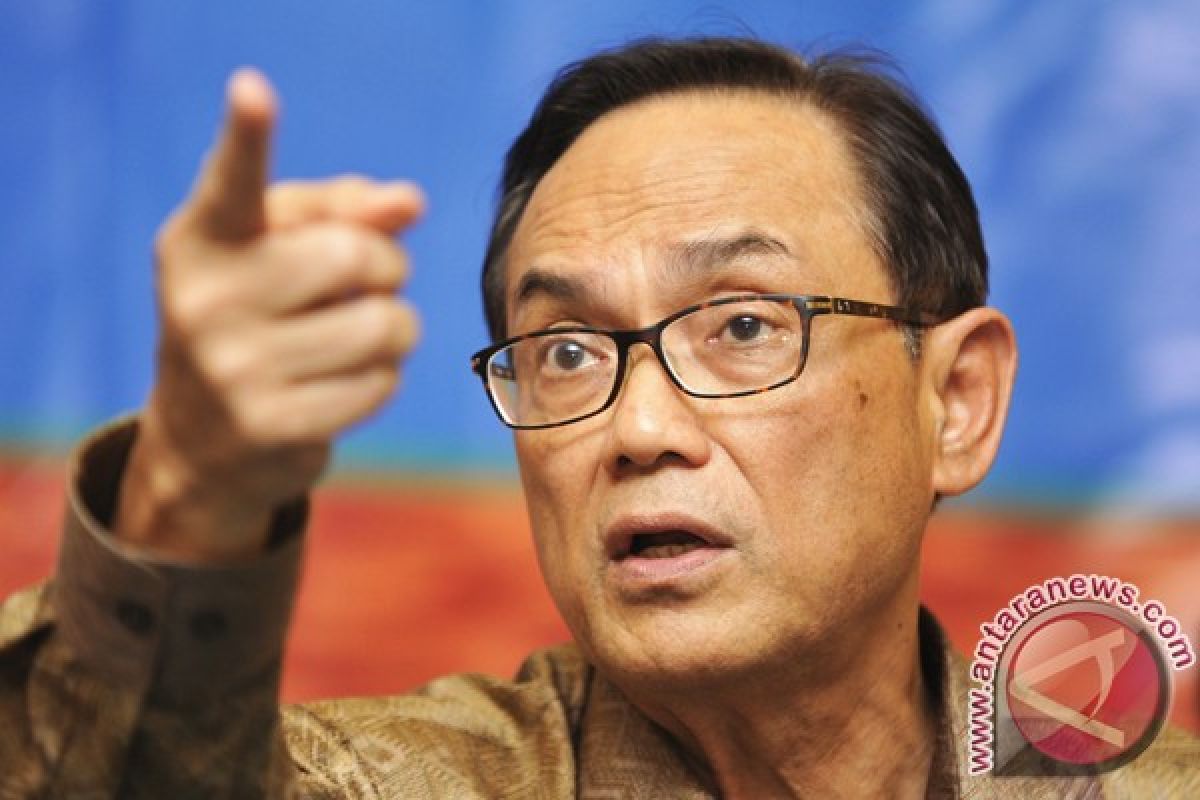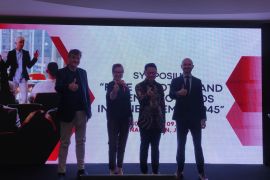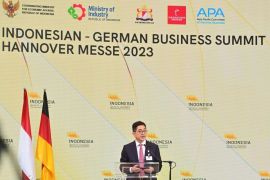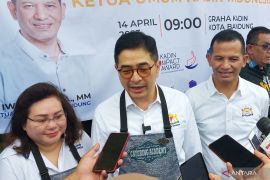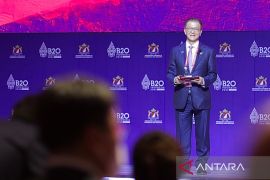The fuel subsidy is the largest area of spending in the state budget."Jakarta (ANTARA News) - Subsidies will be more beneficial if they are used for developing infrastructure to create benefits for the public, rather than using them to subsidize fuels which would be used by people with steady incomes.
The Indonesian Chamber of Commerce and Industry (Kadin) is of the view that Indonesia has faced crucial problems with its fiscal policies because it has not utilized its huge economic resources correctly.
The governments failure in its fiscal policies has been predominantly caused by mistakes in providing a large amount of subsidies for fuels.
Kadin Chairman Suryo Bambang Sulisto said the subsidies set aside in the state budget caused a serious inefficiency which reflected weaknesses in the budget structure.
"The fuel subsidy is the largest area of spending in the state budget. It is larger than expenditures set for infrastructure, social expenditures, civil servant salaries and others," Suryo stated during a press conference at his office on Monday.
Therefore, Kadin urged the government to eliminate subsidies on fuels and direct the funds to improve infrastructure and develop new economic resources.
"We cannot deny that Indonesia has shown relatively high economic growth in the past five years. But, we are concerned about the policy regarding fuel subsidies. From year to year, the fuel subsidies continue to increase and have become a major burden," claimed Kadin Chairman Suryo Bambang Sulisto.
Fuel subsidies have continued to increase, since in 2011 the government set it at Rp129.7 trillion, but it rose by 127 percent to Rp165 trillion at the end of the year. In the following year, in 2012, the government set a fuel subsidy at Rp137.3 trillion, which also rose by 154.2 percent to Rp211.8 trillion.
Last year, the fuel subsidy was set at Rp199.9 trillion, but at the end of the year, it rose by 12 percent to Rp223.88 trillion.
The ministry of finance recorded that energy expenditures at the end of 2013 reached Rp348.1 trillion, or 103.4 percent of the budget ceiling of Rp310 trillion, as a result of fuel subsidy expenditures, which reached Rp210 trillion, or 105.1 percent of the budget ceiling of Rp199.9 trillion.
The government in the 2014 state budget set a subsidy for fuel of Rp211 trillion. But some observers have predicted that it could swell to Rp252 trillion due to the appreciation of the rupiah and the decline in oil being pumped from the fields this year
According to Kadin, the fuel subsidy is a large fund that could be used to develop new economic resources, such as infrastructure that could generate the countrys economic development.
Suryo explained that Kadin did not recommend that the subsidies should be eliminated, but instead, they should be used in areas that will yield benefits.
"Now, it is difficult to measure their benefits, since they are enjoyed by many people who are part of the financially capable group," he pointed out.
Suryo emphasized that Indonesias fiscal policies failed due to the allocation of large fuel subsidies.
He claimed that the irrationally low prices of fuels, resulting due to the subsidies, had accelerated the consumption and import of fuels. As a result, the country experienced a trade deficit, thereby laying undue pressure on the current account deficit.
"As a result, the market players started distrusting the governments policies and also harbored lingering concerns about the future of the Indonesian economy," he noted.
Therefore, Kadin is of the viewpoint that the fuel subsidies should be used for the development of infrastructure.
"The government is no longer in a position to delay allocating an appropriate budget for infrastructure programs, as Indonesians constantly face widespread jams on roads, ports, ferries, and airports, which are beyond the normal limits," the Kadin Chairman remarked.
According to Legislator Hetifah of the Golkar Party, about 30 to 40 percent of the district roads in the country were in poor condition.
Instead of providing fuels with subsidies, which had been off target so far, the government should have ideally utilized the funds for improving the infrastructure.
Last December, Finance Deputy Minister Bambang Brodjonegoro reported that the off-target fuel subsidy restricted the efforts to develop the nations economy and failed to narrow the income gap of the citizens.
He added that the economic growth needed an efficient energy subsidy scheme to increase the fiscal room and for its allocation to productive sectors such as the infrastructure, education, and health.
The analogous opinion was also mirrored by former vice president Jusuf Kalla. He believes that fuel subsidies have been enjoyed by the affluent people. However, if the fuel subsidies are reduced, then the funds generated as a result should not be used for increasing civil servants salaries or for trips for officials.
"The expenditure for government employees may not increase. If it wants to improve the economy and infrastructure, the government is left with no other option but to reduce the amenities of the wealthy people, which they have enjoyed so far, irrespective of which party comes into power during the next administration period," Kalla emphasized.
Kalla, chairman of the Indonesian Red Cross (PMI), pointed out that a food and energy-based reliant economy can be created only if it had adequate infrastructure support.
The diversion of fuel subsidy should not be used for increasing employee salaries or for official trips, seminars, and office costs, but should be used to improve roads, Kalla stressed.
Jusuf Kalla stated that the ideal amount of fuel subsidy is 10 percent of the state budget.
"A 10 percent fuel subsidy is acceptable. It should not reach 22 percent of the state budget. On the technical side, it will depend on the next government. The state cannot improve the roads if the required funds are not made available," Kalla emphasized here on Monday.
However, the former vice president noted that although the government does not have enough funds, it may not reduce subsidies on rice, fertilizers, education, and health.***2***
(T.A014/INE/H-YH)
EDITED BY INE
(T.A014/A/KR-BSR/A/H-YH) 28-01-2014 23:15:26
Reporter: Andi Abdussalam
Editor: Priyambodo RH
Copyright © ANTARA 2014
